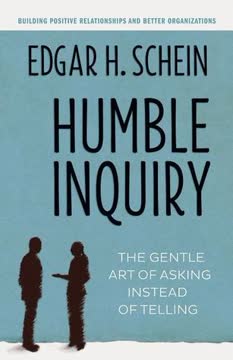Key Takeaways
1. Confront Denial and Take Responsibility for Your Finances
"If you will live like no one else now . . . later you can live like no one else."
Face financial reality. Many people live in denial about their true financial situation, often believing they are better off than they really are. To achieve financial fitness, you must first confront the reality of your current financial state. This involves taking a hard look at your income, expenses, debts, and savings.
Take full responsibility. Recognize that your financial situation is ultimately your responsibility. Avoid blaming others or circumstances for your financial problems. Instead, focus on what you can control and take action to improve your financial health.
- Common signs of financial denial:
- Avoiding looking at bank statements or credit card bills
- Regularly using credit to cover basic living expenses
- Believing that more income alone will solve financial problems
- Comparing yourself to others who appear to be doing well financially
2. Dispel Common Money Myths and Avoid Debt Traps
"Debt is (not) a tool."
Debt is not a wealth-building tool. One of the most pervasive money myths is that debt is a necessary tool for building wealth. In reality, debt adds risk to your financial life and often hinders wealth accumulation. Avoid using debt as a shortcut to acquire things you can't afford.
Beware of debt traps. Many financial products and services are designed to keep you in debt. Be cautious of:
- Credit cards with high interest rates
- Payday loans and cash advances
- Rent-to-own agreements
- Home equity loans used for consumer spending
- Car leases or long-term auto loans
Instead of relying on debt, focus on saving and investing your income to build wealth over time. This approach may require more patience, but it leads to greater financial security and freedom in the long run.
3. Create a Written Budget and Stick to It
"A budget is telling your money where to go instead of wondering where it went."
Develop a zero-based budget. Create a written budget each month that allocates every dollar of your income to specific categories. This ensures that you have a plan for all your money and helps prevent overspending.
Make budgeting a habit. Stick to your budget by tracking your spending and regularly reviewing your progress. Be willing to adjust your budget as needed, but always maintain the principle of allocating all income.
Key budgeting tips:
- Use cash envelopes for discretionary spending categories
- Have regular budget meetings with your spouse if you're married
- Prioritize necessities (food, shelter, utilities, transportation) before wants
- Include savings and debt payoff in your budget
- Allow for some "fun money" to maintain motivation
4. Build an Emergency Fund for Financial Security
"An emergency fund turns a crisis into an inconvenience."
Start with $1,000. Your first financial goal should be to save $1,000 as a starter emergency fund. This provides a buffer against small unexpected expenses and helps break the cycle of relying on credit cards for emergencies.
Expand to 3-6 months of expenses. Once you've paid off all non-mortgage debt, increase your emergency fund to cover 3-6 months of expenses. This larger fund provides security against major life events such as job loss or prolonged illness.
Emergency fund guidelines:
- Keep the fund in a liquid, easily accessible savings account
- Use the fund only for true emergencies, not for regular expenses
- Replenish the fund quickly if you need to use it
- Adjust the fund size based on your job security and family situation
5. Use the Debt Snowball Method to Eliminate Debt
"Focused intensity over time, multiplied by God, equals unstoppable momentum."
List debts smallest to largest. Write down all your debts (except your mortgage) in order from smallest balance to largest. This arrangement provides quick wins to build momentum.
Attack the smallest debt first. While making minimum payments on all debts, put every extra dollar toward paying off the smallest debt. Once it's paid off, move to the next smallest, applying the freed-up payment from the previous debt.
Debt snowball benefits:
- Provides psychological wins to maintain motivation
- Simplifies your financial life as you eliminate individual debts
- Creates momentum as you apply larger amounts to subsequent debts
- Typically results in faster overall debt payoff than other methods
6. Invest 15% of Your Income for Retirement
"If you will live like no one else, later you can live like no one else."
Prioritize retirement savings. Once you're debt-free (except for your mortgage) and have a full emergency fund, invest 15% of your gross income for retirement. This ensures you're building wealth for the future while still allowing for other financial goals.
Use tax-advantaged accounts. Maximize contributions to retirement accounts in this order:
- Employer-sponsored plans with a match (e.g., 401(k))
- Roth IRA
- Additional contributions to employer plans or other retirement accounts
Investment strategy:
- Focus on growth stock mutual funds with a long track record of success
- Diversify across four types of funds: Growth, Growth & Income, Aggressive Growth, and International
- Avoid trying to time the market; instead, invest consistently over time
7. Save for Your Children's College Education
"Providing for your children's college education is a blessing if you can do it without sacrificing your financial health."
Start early if possible. If you have children, begin saving for their college education after you've secured your own retirement savings. The earlier you start, the more time your money has to grow.
Use tax-advantaged accounts. Consider using Education Savings Accounts (ESAs) or 529 plans to save for college. These accounts offer tax advantages when used for qualified education expenses.
College saving tips:
- Aim to cash-flow college expenses if possible, avoiding student loans
- Explore scholarships, grants, and work-study programs
- Consider less expensive education options, such as community colleges or in-state public universities
- Encourage your children to work and save for their own education expenses
8. Pay Off Your Home Mortgage Early
"The paid-off home mortgage has taken the place of the BMW as the status symbol of choice."
Accelerate your mortgage payments. Once you're investing for retirement and saving for college, put all extra money toward paying off your home mortgage. This can save you thousands in interest and provide incredible financial freedom.
Avoid refinancing traps. Be cautious of refinancing to extend your loan term or take cash out of your home equity. These moves often cost more in the long run and increase your financial risk.
Strategies to pay off your mortgage early:
- Make extra principal payments each month
- Apply windfalls (bonuses, tax refunds, inheritance) to your mortgage
- Consider switching to a 15-year fixed-rate mortgage if the numbers work
- Avoid taking on new debt that could hinder your mortgage payoff progress
9. Build Wealth and Give Generously
"There's no energy in logic. You have to get fired up."
Continue building wealth. Once you're completely debt-free, including your home, continue investing and building wealth. This allows you to secure your own financial future and make a positive impact on others.
Practice generous giving. As your wealth grows, look for opportunities to give generously to causes and people you care about. Giving not only helps others but also brings personal fulfillment and perspective to your financial journey.
Ways to build and share wealth:
- Increase your retirement savings beyond 15%
- Invest in non-retirement mutual funds or real estate
- Start a business or side hustle to generate additional income
- Create a giving plan to support charities and individuals in need
- Consider establishing a family foundation or donor-advised fund for structured giving
Last updated:
FAQ
What's "The Total Money Makeover Workbook" about?
- Financial Transformation: "The Total Money Makeover Workbook" by Dave Ramsey is a guide designed to help individuals achieve financial fitness through a series of structured steps.
- Practical Exercises: It includes practical exercises and worksheets to apply the principles from Ramsey's main book, "The Total Money Makeover."
- Debt Elimination Focus: The workbook emphasizes eliminating debt, building savings, and investing for the future.
- Behavioral Change: It aims to change financial behaviors and attitudes towards money, promoting a disciplined approach to personal finance.
Why should I read "The Total Money Makeover Workbook"?
- Hands-On Approach: The workbook provides a hands-on approach to managing finances, making it ideal for those who learn by doing.
- Proven Strategies: It offers proven strategies that have helped many people achieve financial peace and stability.
- Step-by-Step Guidance: The workbook breaks down complex financial concepts into manageable steps, making it accessible for beginners.
- Motivational Content: Ramsey's motivational style encourages readers to take control of their financial future and make lasting changes.
What are the key takeaways of "The Total Money Makeover Workbook"?
- Emergency Fund Importance: Establishing a $1,000 emergency fund is the first step to financial security.
- Debt Snowball Method: Use the debt snowball method to pay off debts from smallest to largest, gaining momentum as you go.
- Budgeting is Crucial: Creating and sticking to a monthly budget is essential for financial success.
- Long-Term Investing: Once debts are cleared, focus on investing 15% of your income for retirement.
How does the Debt Snowball Method work in "The Total Money Makeover Workbook"?
- List Debts: List all debts from smallest to largest, regardless of interest rate.
- Focus Payments: Pay minimums on all debts except the smallest, which you attack with any extra money.
- Gain Momentum: As each debt is paid off, roll the amount you were paying into the next smallest debt.
- Psychological Boost: This method provides quick wins, boosting motivation and confidence.
What is the significance of the Emergency Fund in "The Total Money Makeover Workbook"?
- Initial Safety Net: The emergency fund acts as a financial safety net to cover unexpected expenses.
- Prevents New Debt: Having this fund prevents the need to incur new debt when emergencies arise.
- Peace of Mind: It provides peace of mind, knowing you have a buffer against financial surprises.
- Foundation for Stability: It's the foundation for building a stable financial future, allowing focus on debt elimination.
How does "The Total Money Makeover Workbook" suggest handling retirement investing?
- 15% Rule: Invest 15% of your gross income into retirement accounts.
- Diversified Funds: Focus on growth-stock mutual funds for long-term growth.
- Roth IRA Benefits: Utilize Roth IRAs for tax-free growth and withdrawals in retirement.
- Start Early: Emphasizes the importance of starting early to maximize compound interest benefits.
What are the best quotes from "The Total Money Makeover Workbook" and what do they mean?
- "If you will live like no one else, later you can live like no one else." This quote emphasizes the importance of making sacrifices now to enjoy financial freedom later.
- "Debt is normal. Be weird." Encourages readers to break away from societal norms of living in debt and strive for financial independence.
- "You have to tell money what to do or it leaves." Highlights the necessity of budgeting and controlling your finances actively.
- "Winning at money is 80% behavior and 20% head knowledge." Stresses that financial success is more about changing habits than just knowing financial facts.
How does "The Total Money Makeover Workbook" address the concept of budgeting?
- Zero-Based Budgeting: Every dollar of income is assigned a purpose, ensuring no money is left unaccounted for.
- Monthly Adjustments: Budgets should be revisited and adjusted monthly to reflect changes in income and expenses.
- Spousal Agreement: If married, both partners must agree on the budget to ensure cooperation and accountability.
- Envelope System: Encourages using cash envelopes for discretionary spending categories to prevent overspending.
What advice does "The Total Money Makeover Workbook" give on buying a home?
- 15-Year Mortgage: Recommends a 15-year fixed-rate mortgage to save on interest and pay off the home faster.
- Avoid Home Equity Loans: Advises against using home equity loans as an emergency fund due to the risk of losing the home.
- Pay Off Early: Encourages making extra payments to pay off the mortgage early, freeing up income for other investments.
- Cash Purchase Ideal: If possible, buying a home with cash is the best option to avoid debt entirely.
How does "The Total Money Makeover Workbook" suggest dealing with college funding?
- Avoid Student Loans: Strongly advises against taking out student loans due to their long-term financial burden.
- Education Savings Accounts (ESAs): Recommends using ESAs and 529 plans to save for college expenses tax-free.
- Work and Scholarships: Encourages students to work part-time and apply for scholarships to reduce college costs.
- Community College Option: Suggests starting at a community college to save money on general education courses.
What role does giving play in "The Total Money Makeover Workbook"?
- Joy of Giving: Emphasizes that giving is one of the most rewarding uses of money.
- Financial Strength: Only those who are financially strong can help others effectively.
- Balanced Approach: Encourages balancing fun, investing, and giving to achieve a fulfilling financial life.
- Legacy of Generosity: Promotes the idea of leaving a legacy of generosity for future generations.
How does "The Total Money Makeover Workbook" define financial peace?
- Debt Freedom: Achieving financial peace begins with eliminating all forms of debt.
- Emergency Preparedness: Having a fully funded emergency fund provides security and peace of mind.
- Retirement Security: Investing wisely for retirement ensures financial dignity in later years.
- Living Generously: Financial peace includes the ability to give generously and make a positive impact.
Review Summary
The Total Money Makeover Workbook receives mostly positive reviews for its practical financial advice and motivational approach. Readers appreciate the step-by-step guidance on budgeting, debt reduction, and saving. Some find the Christian undertones and repetitive content off-putting. The workbook format is praised for its interactive exercises and templates. Critics note the lack of in-depth budget training and overemphasis on credit card debt. Overall, many readers report improved financial habits and motivation to achieve financial freedom after reading the book.
Similar Books










Download PDF
Download EPUB
.epub digital book format is ideal for reading ebooks on phones, tablets, and e-readers.












